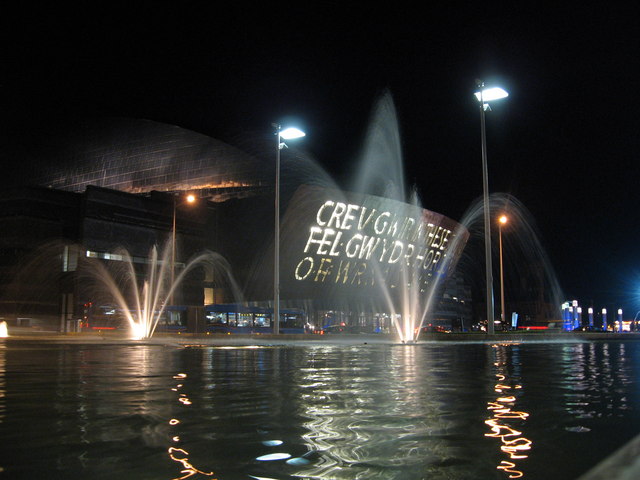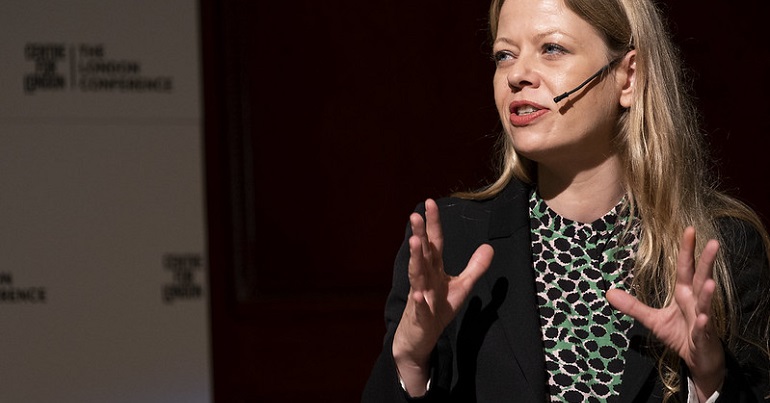Cardiff Without Culture? Welsh capital fears decimation of Council arts budget

As the old train of austerity trundles through the UK without a care for what lies in its path we see culture being railed over again and again. What’s more devastating is seeing it coming from Labour run councils.
In 2004, Dame Tessa Jowell, then Minister for Culture, Media & Sport, wrote the ground breaking essay Government and the Value of Culture in which she argued:
‘Too often politicians have been forced to debate culture in terms only of its instrumental benefits to other agendas…explaining – or in some instances almost apologising for – our investment in culture on in terms of something else. In political and public discourse in this country we have avoided celebrating what culture actually does in and of itself.’
Jowell make a concerted attempt to argue culture for culture’s sake, with the essay being the first concerted attempt by a government minister to make such an argument public. Key Labour figures are also behind some of the great cultural achievements of the last 25 years. Ken Livingstone, for example, made national museums in London free when in office as the city’s mayor. The Blair government for all its sins widened access to music and cultural education.
So it becomes rather baffling to see the recent budget proposals by Cardiff City Council to obliterate the entire arts and culture provision for the city and standing with the Tory fallacy that private benefactors will instead foot the bill, not considering the inevitability of the re-establishment of arts only for the elite.
This year I finally moved to Cardiff after being a satellite PhD student at the university. In the six or so months I’ve been here I’ve become somewhat immersed in the city’s cultural goings on. To my utter delight and privilege I’ve witnessed some of the most ground breaking and innovative artistic performance, exhibitions and ideas. One of my first cultural engagements was the Hijinx Unity Festival which highlights inclusive and disability arts. I saw a stunning dance performance called Borderlines in which a company from Mozambique explored themes of civil war and identity leaving me moved. In November I explore the Diffusion photography festival exploring the theme ‘Looking for America’ from quirky, unique and original angles. I also went to the Swn festival in November spending most of my time at the Horizons stage, Horizons being a talent development partnership created by the BBC and Arts Council Wales and had my mind blown. I saw a force majeure Afrobeat band from Cardiff get a packed room grooving and the innovative HMS Morris headline the Saturday night with dancers from a local troupe illuminating the songs with amazing routines. This is but a tiny snapshot of the creative goings on in the Welsh capital.
The proposed cuts to arts and culture in Cardiff also read as a familiar story. In 2012 the UK cultural community was alarmed by the budget proposals of Newcastle City Council, who tabled the idea of cutting 100% of the council arts budget. After intense negotiation and intervention of the Arts Council of England the cuts were scaled back to 50% but questions were raised if this was a cynical tactic by the council. Many wondered if it was merely a way to save face and show that the council was listening to concerns, whilst having no real intention to make such deep cuts. By scaling back from an all-out budget purge it created an agreeable compromise, but many suspect that the 50% target was the council’s original intent. There is fear this model might be reciprocated across the country. The arts have also become a soft budget target, with many citizens not being wholly aware of the economic impacts of withdrawing such budgets. The arguments are simplified to comparators placing the arts against healthcare or education to admonish any suggestion of it being a key investment priority.
The Cardiff Without Culture movement has been set up in response to the budget proposal of Cardiff Council. Led by local freelance producer Laura Drane, the group has brought together all the major arts leaders at the city from small to large organisations as well as freelancers to stand in direct opposition to the council’s proposals. They have been organising communal actions asking Cardiff residents to write to their councillors and respond to the proposals through the official consultations mechanisms. There are also plans for artivisitic actions to remind the council of the importance of arts to the city.
If anyone in Cardiff wishes to respond they have until Monday to do so through the following online survey: http://bit.ly/1ZTpU6v
Though the consultation ends Monday the Cardiff Without Culture group will aim to pressure the council throughout the decision-making processes and to hold them to account for any further actions.



Yes, it’s highly probable that the council really wants to cut the budget by half, and then this can be sold as a sort of win for the arts on Cardiff. Basically, the council must cut their budget significantly, and they have a legal obligation to continue to provide certain services, for example to the elderly and other vulnerable groups.The realistic approach to dealing with a major cut in the art budget is for the artistic community to help to prioritise what can be saved: some things are probably doomed.